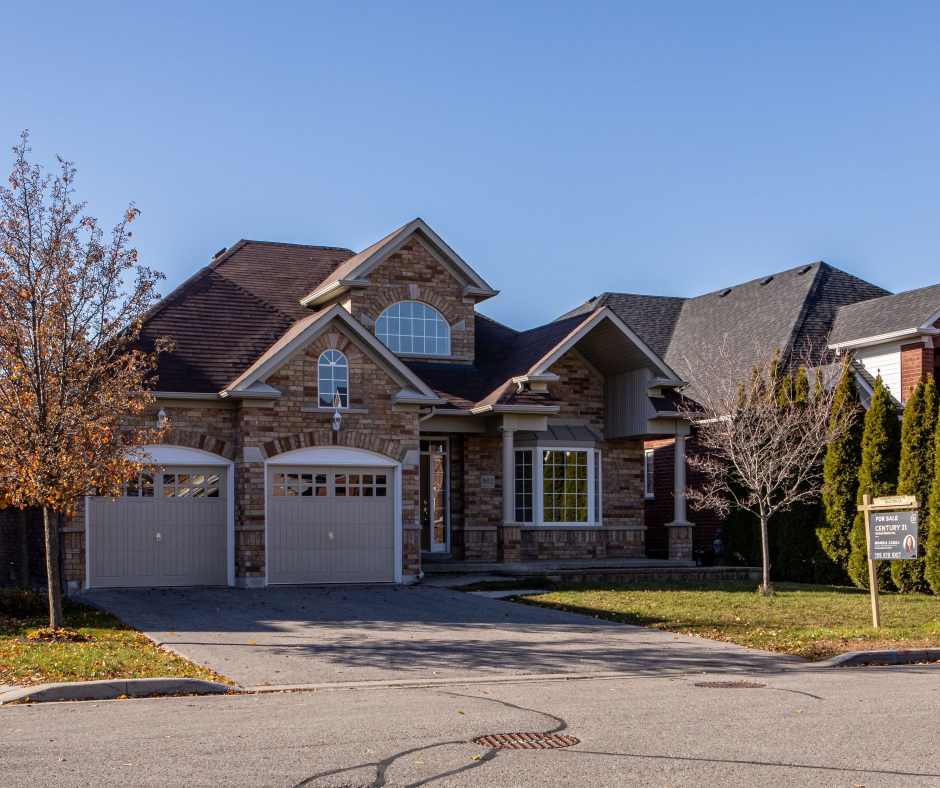Home Purchase Advice For First-Time Homebuyers
This guide covers home purchase advice for first-time homebuyers.
Home Purchase Advice:
- A home purchase is not like any other high ticket purchase like buying a vehicle, motorhome, or boat
- A home purchase is not as simple as it once used to be
- Majority of home buyers need a mortgage loan for a home purchase
- Qualifying for a mortgage is like going through an IRS audit—maybe even tougher than an IRS audit
- If you have made up your mind that you want to purchase a home and be a homeowner, right now will be a great time to prepare
- If you educate yourself in the home purchase basics and the mortgage application and approval process, it is not as bad as you think
- The home buying and mortgage process can be very smooth
- There are several factors you need to consider and think about prior to writing a purchase offer on a home
In this article, we will discuss home purchase advice for first-time homebuyers.
Home Purchase Advice On Qualifying For Mortgage
The first step to take into consideration is to see if you qualify for a mortgage.
- If so, how much you qualify for
- Consult with an experienced licensed mortgage loan officer
- See what the maximum amount you qualify for
- You do not have to commit to the first loan officer you go to
- Interview several loan officers and see which loan originator you feel comfortable with
- The loan officer will ask you to complete a 4-page mortgage loan application
- The loan officer will pull credit and run the mortgage package through the Automated Underwriting System for automated approval
- The loan officer will get you a pre-approval on the maximum amount of mortgage the borrower will qualify for and the maximum home price they will be able to qualify for
- Just because you qualify for a certain amount of mortgage does not mean you need to get the maximum mortgage amount
Homebuyers should go over their finances and decide how much home they can afford.
Get Expert Home Purchase Advice & Qualify for the Right Mortgage
Apply Now And Get recommendations From Loan Experts
Home Purchase Advice: How Much Home Can I Afford?
Once you are pre-approved for a mortgage loan and prior to going out shopping for a home, you need to give some thought to your personal finances and see how much home you can afford. Remember that your loan officer qualified you on the maximum mortgage you can afford just by going over your monthly gross income and your total monthly debt payments that are being reported on your credit report
The loan officer does not take into account personal expenses such as the following:
- Childcare
- Entertainment expenses
- Medical expenses
- School expenses
- Other personal expenses
- Borrowers need to consider the extra expenses you have and decided what the comfort level is
You can then contact your loan officer and tell him what your maximum monthly housing budget is, and he can tell you the maximum price range of homes you should be shopping for.
Home Purchase Advice: Adjustable Mortgage Rate Or Fixed Rate Mortgage
There are many mortgage loan programs that every home buyer should think about and talk it over with their mortgage consultant. First-time homeowners need to think about how long they are planning on living on their first home purchase. Many first-time home buyers have plans to purchase their new home and stay there for the short term, like 5 years or slightly longer, and upgrade to a larger home. For example, a recent college graduate or single person may decide on a small one-bedroom condominium. They may eventually start a family and upgrade to a larger home. This first-time home buyer may benefit from an adjustable-rate mortgage versus a fixed-rate mortgage loan. Mortgage rates on adjustable-rate mortgages, also known as ARM, are lower than fixed-rate mortgage loans. If you are planning on keeping your home purchase for the long term and do not want your mortgage rates to adjust after your initial fixed-rate period, a 30-year fixed-rate mortgage may be the best choice for you.
Home Purchase Advice: Prepare For The Down Payment And Closing Costs
Once you have decided that you are definitely going to purchase a home, you need to review your finances. Do you have the down payment and closing costs? Do you have reserves in case of unexpected repairs? Closing costs can be offset by getting a seller concession from the home seller or by a lender credit. FHA loan programs require a 3.5% down payment. Conventional loans require a 3% down payment. USDA loans and VA loans do not require any down payment. Jumbo loans require at least a 20% down payment. For more information about the content of this article or other mortgage-related topics, please contact us at Mortgage Lenders for Bad Credit at 800-900-8569 or text us for a faster response. Or email us at gcho@gustancho.com. The team at Mortgage Lenders for Bad Credit is available seven days a week, evenings, weekends, and holidays.
FAQ’s on Home Purchase Advice For First-Time Homebuyers
Here’s a practical FAQ on home purchase advice tailored for first-time homebuyers, reflecting current trends and best practices as of March 20, 2025:
What’s the first step to buying a home?
Get pre-approved for a mortgage. Contact a lender to assess your budget based on income, credit score, and debt. This will give you a price range and strengthen your offer when you find a home.
How much should I save for a down payment?
- Minimum: 3%–5% for conventional loans, 3.5% for FHA loans, or 0% for VA/USDA loans if eligible.
- Ideal: Aim for 20% to avoid private mortgage insurance (PMI) and lower monthly payments (e.g., $40,000 on a $200,000 home).
- Tip: When budgeting, factor in closing costs (2%–5% of the price, or $4,000–$10,000 on a $200,000 home).
What credit score do I need?
- FHA Loans: 580+ for 3.5% down; 500–579 for 10% down.
- Conventional Loans: 620+ (some lenders accept lower, but rates may rise).
- Best Rates: 740+ unlocks lower interest rates.
- Action: Check your score early (via your bank or free services), fix errors, or pay down debt if necessary.
How do I find the right home?
- Prioritize Needs: List must-haves (e.g., bedrooms, location) vs. nice-to-haves (e.g., big yard).
- Research: Use online tools like Zillow or Redfin, but work with a buyer’s agent for local insights and off-market options.
- Visit: Tour homes in person—photos don’t tell the full story.
What’s a buyer’s agent, and do I need one?
- A buyer’s agent represents you, not the seller, and helps with searches, negotiations, and paperwork.
- The seller typically pays their fee, so it’s free for you.
- Yes, get one—especially as a first-timer.
How do I make a competitive offer?
- Pre-approval: Shows you’re serious.
- Market Match: Your agent can pull recent sales of similar homes (comps) to base your offer on.
- Extras: Add an escalation clause (e.g., “I’ll beat the highest offer by $1,000 up to $X”) or waive minor contingencies if you’re comfortable.
- Personal Touch: Write a letter to the seller about the market’s emotional state (e.g., family-friendly areas).
What are contingencies, and should I waive them?
- Common ones: financing (loan approval), appraisal (value matches price), inspection (home condition).
- Waiving: Risky but can win in hot markets. Only waive if you have cash reserves or are okay with surprises (e.g., repair costs).
- Discuss with your agent and lender.
What costs should I expect beyond the down payment?
- Closing Costs: $4,000–$10,000 (title fees, taxes, etc.).
- Insurance: homeowners ($1,000–$2,000/year) and possibly PMI ($50–$100/month).
- Moving & Repairs: $1,000–$5,000+ depending on distance and home condition.
- Emergency Fund: Save 3–6 months of expenses for surprises.
Can I get help with the down payment?
Yes! Look into:
- FHA Loans: Low 3.5% down option.
- Down Payment Assistance: State/local programs offer grants or loans (e.g., $5,000–$15,000)—check HUD.gov or ask your lender.
- Gifts: The family can pitch in with a gift letter (no repayment is expected).
What mistakes should I avoid?
Overbuying: Stick to a budget—monthly payments (mortgage, taxes, insurance) shouldn’t exceed 28%–36% of your gross income.
- Skipping Inspection: Even new homes can have issues; spend $300–$500 to avoid $10,000+ in regrets.
- Rate Shopping Late: Lock in a mortgage rate early—rising rates can shrink your budget fast.
- Big Purchases: Don’t buy a car or furniture on credit before closing—it can tank your loan approval.
How long does the process take?
- Pre-Approval: 1–3 days.
- House hunting: weeks to months, depending on the market.
- Offer to Closing: 30-45 days for traditional sales; longer for short sales or foreclosures.
- Total: 2-3 months, typically.
What if I’m in a hot market?
- Act fast: Have documents ready and visit homes ASAP.
- Bid smart: Offer slightly above asking if comps support it.
- Stay flexible: Expand your search area or adjust expectations (e.g., fixer-upper vs. move-in ready).
Final Home Purchase Advice
Start Small:
You don’t need your dream home first. Build equity and trade up later. Talk to a lender now to get your numbers, then team up with an agent who gets first-timers. Have questions about any of this? I can dig deeper!
Minimum Down Payment & Credit Score Requirements
Get Personalized Home Purchase Advice & Get Pre-Approved Now!







